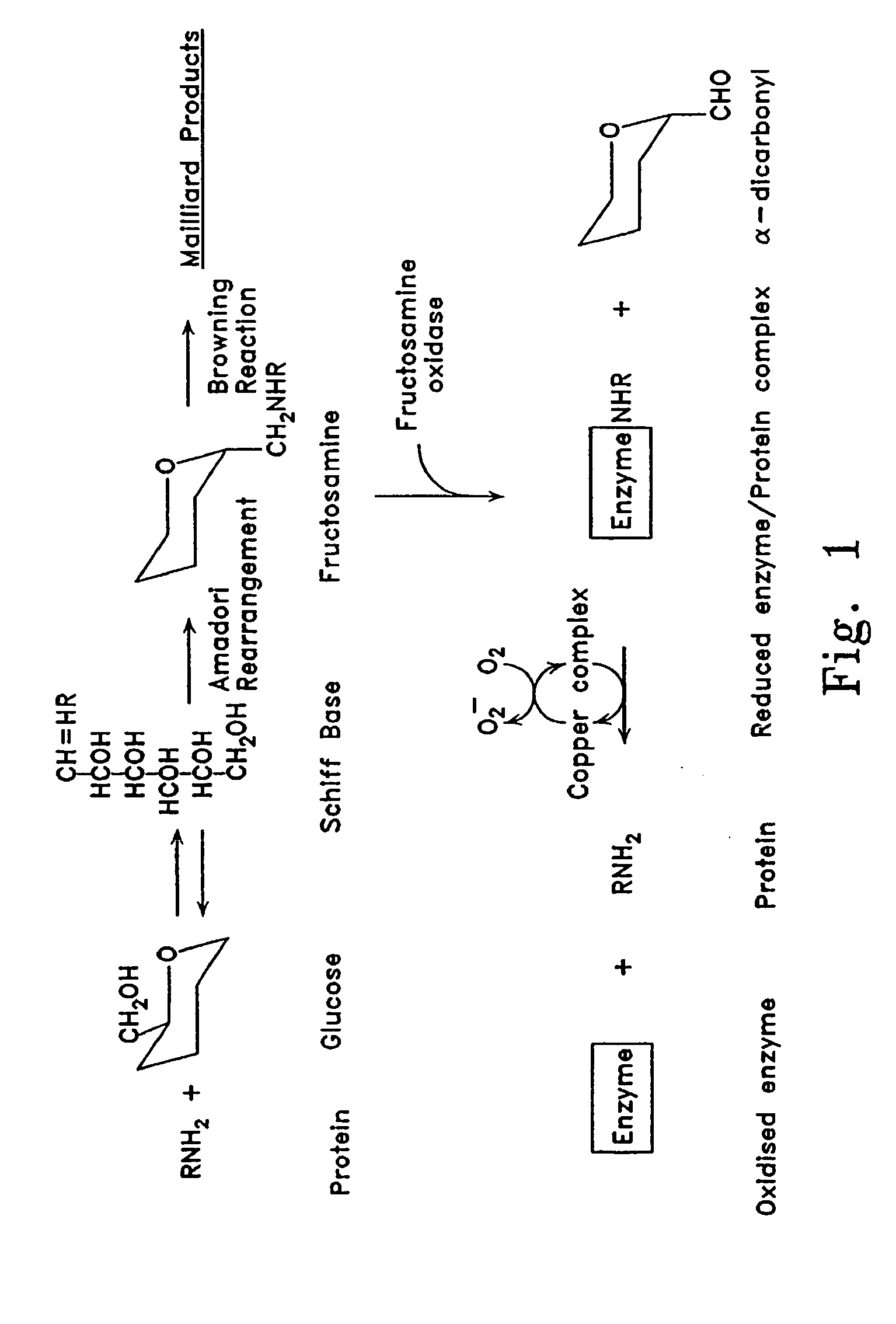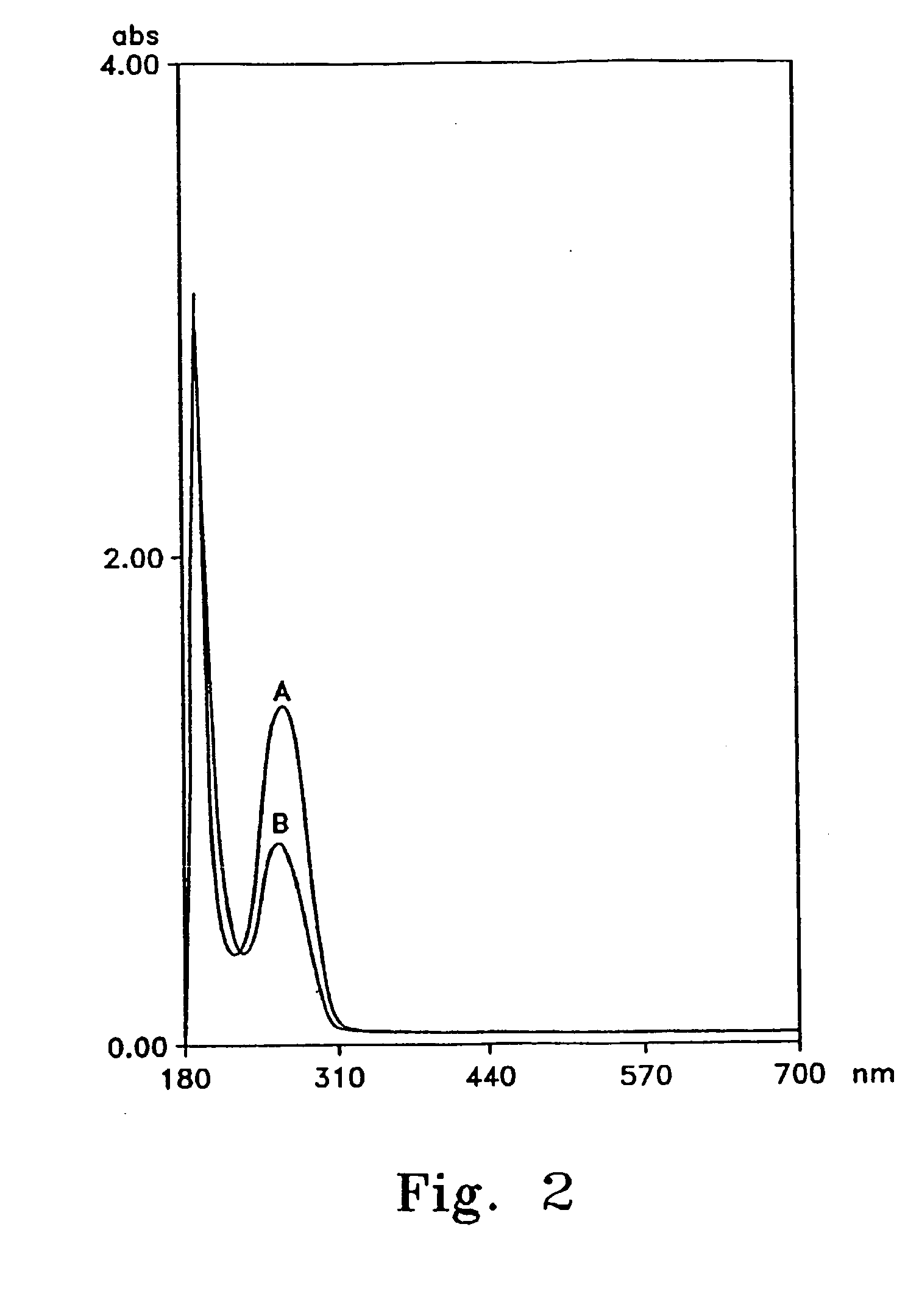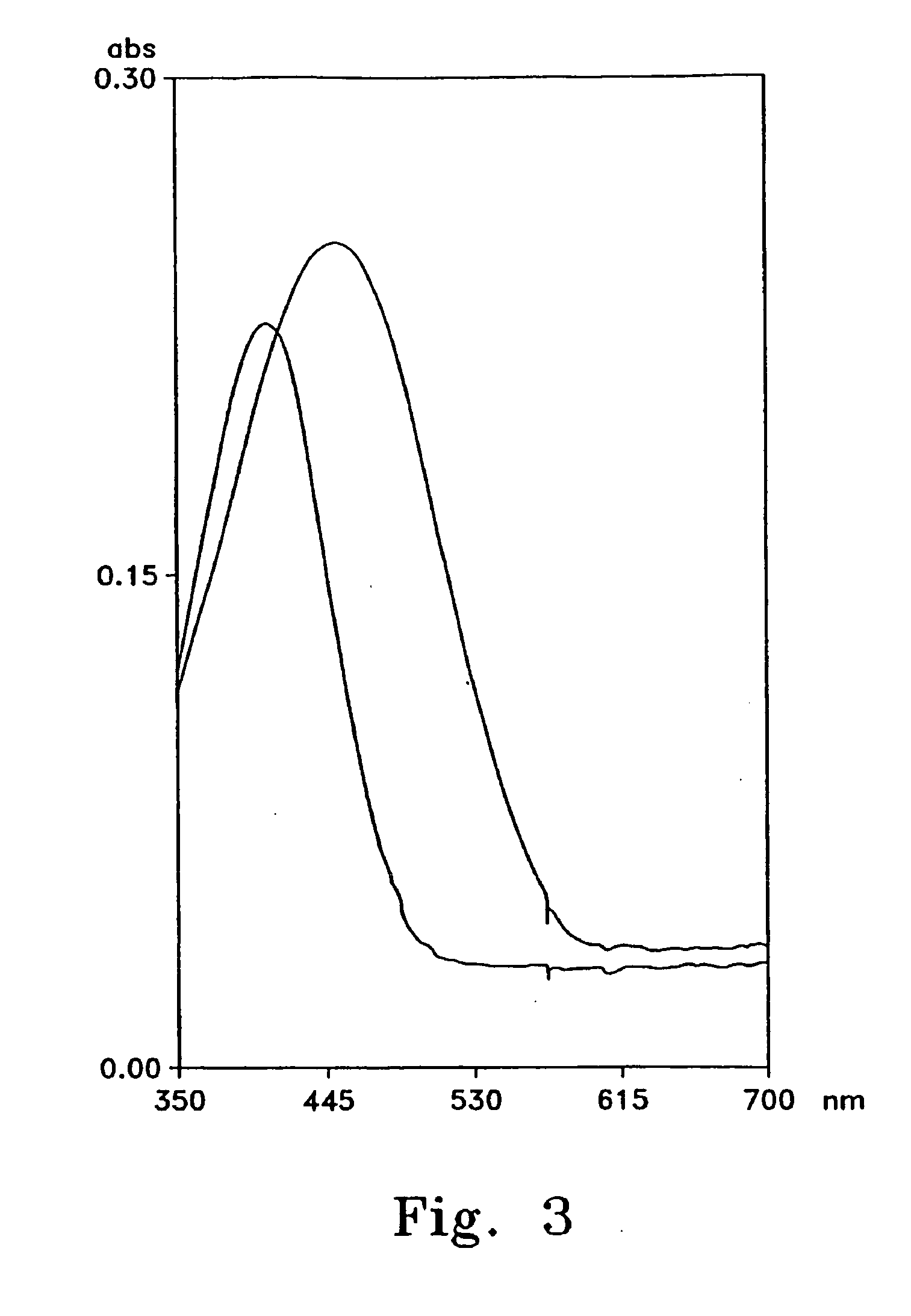Treatment of diabetes with copper binding compounds
a technology of copper binding compounds and diabetes, applied in the field of biochemistry, can solve the problems of insufficient fructosamine oxidase inhibitors, inability to clearly explain the role of maillard products as a cause factor, and prone to complications in diabetic individuals, so as to reduce the damage of macrovascular and microvascular structures, control the blood pressure of diabetic patients, and achieve sufficient fructosamine oxidase inhibitory and/or antagonizing
- Summary
- Abstract
- Description
- Claims
- Application Information
AI Technical Summary
Benefits of technology
Problems solved by technology
Method used
Image
Examples
example 1
Extraction of Holoenzyme
[0085] Fructosamine oxidase in blood plasma is largely found as an enzyme-substrate conjugate, bound to peptides and proteins (FIG. 1). To obtain a maximal yield of active holoenzyme, it was necessary to make the pH of the media alkaline preferably with phosphate buffer, to add sulphydryl reagents, and to incubate the mixture with pro-oxidant so that glycated species were released. Most effective activation was found with cupric salts.
[0086] Fructosamine oxidase holoenzyme was separated from inactive apoenzyme by affinity adsorption chromatography. A suitable glycated affinity support was prepared from alkylamine beads or beaded cross-linked agarose with amino terminal residues attached by 6-10 atom spacer arms (available from Pierce™, Bio-Rad™, and Pharmacia™). The affinity support was glycated by incubating with 400 mM potassium phosphate buffer pH 7.4 containing 50 mM glucose and 0.01% sodium azide at 37° C. for 7 days. Holoenzyme bound tightly to glycat...
example 2
Identifying Fructosamine Oxidase Inhibitors
[0091] The purpose of this example was to demonstrate how the fructosamine oxidase assay, the subject of a PCT International patent specification NZ 332085 the contents of which are hereby incorporated by reference, may be used in identifying and grading candidate fructosamine oxidase inhibitors. This approach took into account the activity of the drug in a human plasma matrix in vitro. Enzyme inhibitors have wide and numerous applications in clinical medicine as treatments for a range of metabolic disorders. For example, angiotensin converting enzyme inhibitors have been used in the treatment of hypertension. See, for example, Harris E. E., Patchett A. A., Tristram E. W., and Wyvratt M. J., “Aminoacid derivatives as antihypertensives” U.S. Pat. No. 4,374,829 (1983). Similarly, 3-hydroxy-3-methylglutaryl-coenzyme A (HMG-CoA) reductase enzyme inhibitors have been used in the treatment of hypercholesterolemia. See, for example, Hoffman W. F....
example 3
First Preclinical Study
[0100] The purpose of this example was to demonstrate how the clinical usefulness of candidate fructosamine oxidase inhibitors may be assessed using a standard animal model of diabetes mellitus, the streptozocin-diabetic rat (STZ rat). This approach took into account drug bioavailability, the activity of the drug and its metabolites, and any drug adverse effects or toxicity factors.
[0101] Method: [0102] 48 Wistar rats aged 6-8 weeks and weighing 200-300 g were randomized: [0103] Group 1 Non-diabetic control [0104] Group 2 Diabetic control [0105] Group 3 Diabetic treated with hydralazine [0106] Group 4 Diabetic treated with EDTA [0107] Group 5 Diabetic treated with hydralazine and acetylcysteine [0108] Group 6 Diabetic treated with acetylcysteine [0109] Streptozotocin (60 mg per kg) was administered into a lateral tail vein.
[0110] Non-diabetic controls received a sham injection of buffer. Diabetes was confirmed by venous blood glucose measurement >15 mmol / L ...
PUM
| Property | Measurement | Unit |
|---|---|---|
| pH | aaaaa | aaaaa |
| permeability | aaaaa | aaaaa |
| density | aaaaa | aaaaa |
Abstract
Description
Claims
Application Information
 Login to View More
Login to View More - R&D
- Intellectual Property
- Life Sciences
- Materials
- Tech Scout
- Unparalleled Data Quality
- Higher Quality Content
- 60% Fewer Hallucinations
Browse by: Latest US Patents, China's latest patents, Technical Efficacy Thesaurus, Application Domain, Technology Topic, Popular Technical Reports.
© 2025 PatSnap. All rights reserved.Legal|Privacy policy|Modern Slavery Act Transparency Statement|Sitemap|About US| Contact US: help@patsnap.com



